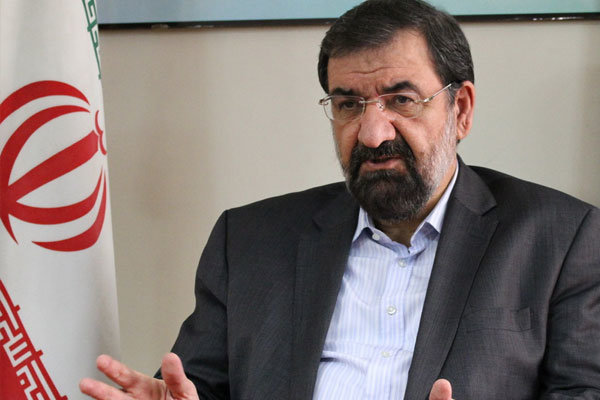The warning by Mohsen Rezaei during a meeting with Iraqi journalists in Baghdad Sunday night came as the date drew nearer for the semi-autonomous Kurdistan region in northern Iraq to hold the plebiscite on September 25.
“Iraq is a well-known nation and a member of the United Nations with international borders, and its breakup is a very wrong thing, because the disintegration of the country would be the starting point for dangerous insecurities in the region,” he said.
It would have “dangerous” ramifications for the regional countries, said Rezai, who is currently the secretary of Iran’s top arbitration body, the Expediency Council, having served as the head of the Islamic Revolution Guards Corps (IRGC) all through the eight-year Iraqi war of the 1980s on Iran.
“If the disintegration of Iraq begins, it will be extended to Syria and Turkey, and a separatist war will break up in the region, which may plunge the region to 20 years of insecurity,” said Rezaei.
“That is why the Islamic Republic of Iran, Turkey, Syria and Iraq are strongly opposed to a geographical change in the region,” he said of the four ethnically diverse nations which have Kurdish populations.
The Iranian government has maintained generally positive relations with Kurdish political entities and it greatly values stability along its western border with Iraq. That mountainous region already enables some Kurdish groups to skirmish with Iranian forces.
With Turkey obsessive in opposing a Kurdish state, Rezaei warned of possible deployment of Turkish troops to northern Iraq if the Kurds secede.
The anti-Turkish PKK terrorist group dominates the armed groups operating in northern Syria. If a Kurdish state is forged from Iraq, the Turks will assume that it would appropriate Kurdish-occupied territory in Syria. That would formalize a major security threat along Turkey’s border.
The US has been supporting Kurdish militants in Syria for some time, shipping in massive volumes of heavy weapons to the region, which has sounded alarm bells in Turkey.
As a result of a secession, Rezaei said, new wars would start in the region between the central government of Iraq and Kurdistan, which would only harm the Kurdish nation.
“Unfortunately, the issue of the referendum on the Iraqi Kurdistan, more than being a popular demand, is a personal issue, and many Kurdish leaders are against it,” he said.
Masoud Barzani, president of the Iraqi Kurdistan region, has told various officials he would push for a referendum, but the UN and the Europeans have refused to support it, at least publicly.
Rezaei said, “Some Kurdish leaders want to make a name and a reputation through the referendum, while what Iraqi Kurdistan needs is security and progress.”
The Iranian official is in Iraq along with Expediency Council chairman Ayatollah Mahmoud Hashemi Shahroudi who met with Prime Minister Haider al-Abadi in Baghdad Sunday.
Rezaei said UN and European countries’ refusal to send delegations to observe the Kurdish referendum is “the biggest failure” for the process.
“If the Kurdish leaders of Iraq continue to insist on a referendum, that would have no more than two reasons: either personal motivation or behind-the-scenes hands,” he said, adding that the future would expose those hidden agendas.
Rezaei touched on the US policy in the region, stressing that the Americans do not want complete security to be established in Iraq and Syria, and oppose any action that leads to lasting security in these two countries.
Israel’s Prime Minister Benjamin Netanyahu has also expressed interest in partitioning Iraq and establishing an independent Kurdish state in the Arab country, the Jerusalem Post reported last month.
The Israeli premier expressed his “positive attitude” toward a Kurdish state in the northern areas of Iraq during a meeting with a delegation of 33 US Republican congressmen, the Israeli paper said.
A report published in the New Yorker magazine in 2004 said Israeli military and intelligence operatives were active in Kurdish areas and providing training for commando units.
According to the report, Israel has been expanding its presence in Kurdistan and encouraging Kurds, its allies in the region, to create an independent state.
